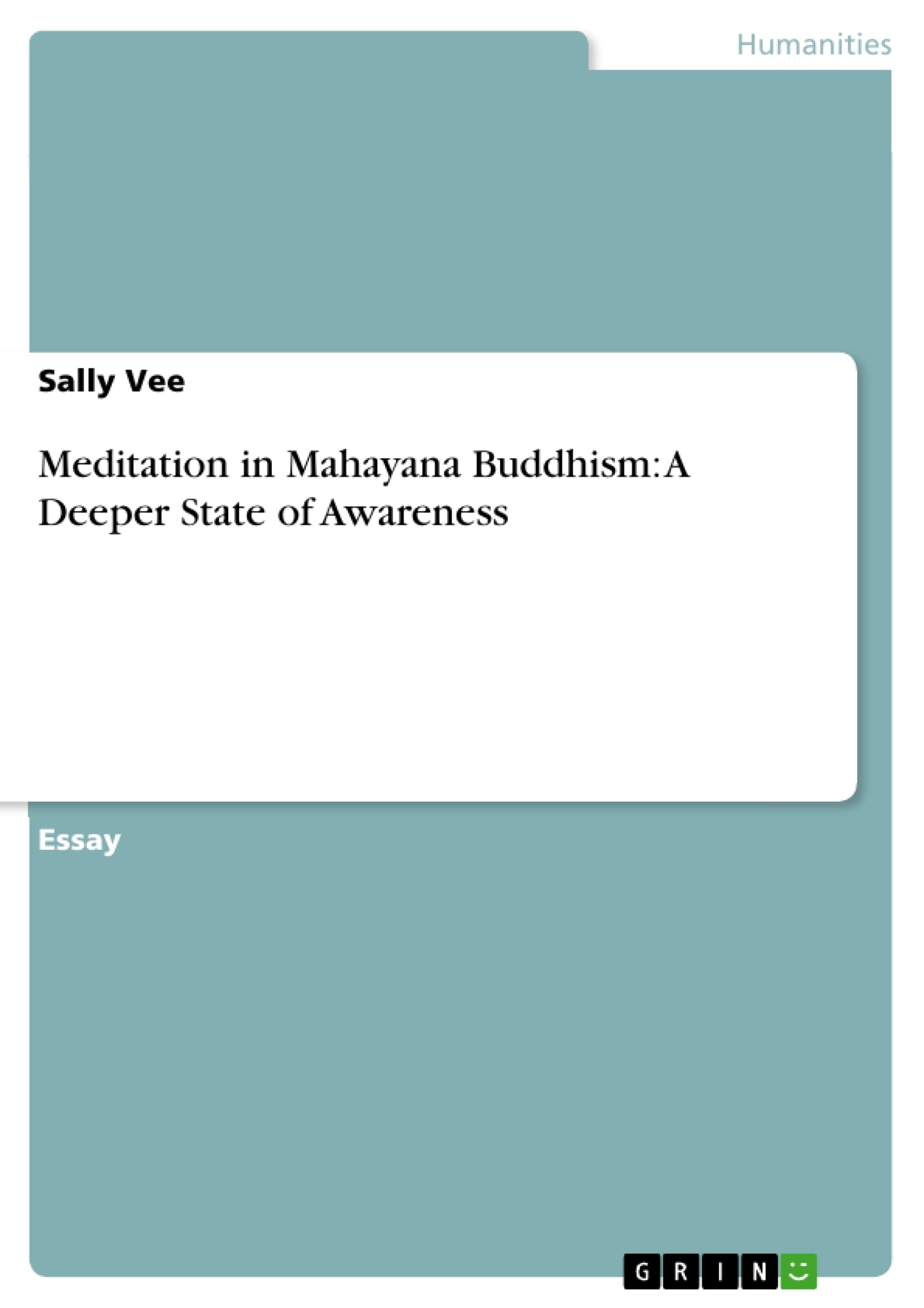As human beings we have the constant struggle of working, eating a balanced diet,
exercising, having a social life, spending time with one’s family, staying current with today’s
news and receiving at least eight hours of sleep. Our agendas are naturally stocked so there is no
doubt that we all come across the evil seed that is stress, from time to time. Our bodies unburden
stressful situations by releasing feelings of anxiety, tension and nervousness. We do not have to
be doctors to know that these feelings are not the most beneficial regarding what is good for our
bodies. In order to reduce, prevent and cope with these emotional reactions one can practice the
stress relieving buddhist ritual of meditation. The two most common and useful types of
meditation are Loving Kindness Meditation, known as Metta Bhavana, and Mindfulness of
Breathing, known as Anapanasati (Vana 27). In this paper one will perceive an overview about
the two most useful types of meditation mentioned previously, explore the benefits that come
with regularly practicing meditation and read about different cases that prove the effects of this
buddhist custom.
Inhaltsverzeichnis (Table of Contents)
- Meditation in Mahayana Buddhism: A Deeper State of Awareness
- The Origins of Meditation
- The Importance of Mindfulness
- Loving Kindness Meditation (Metta Bhavana)
- Mindfulness of Breathing Meditation (Anapanasati)
- The Benefits of Meditation
- Meditation and the Brain
Zielsetzung und Themenschwerpunkte (Objectives and Key Themes)
This paper explores the practice of meditation within Mahayana Buddhism, focusing on two key types: Loving Kindness Meditation (Metta Bhavana) and Mindfulness of Breathing Meditation (Anapanasati). The paper aims to provide an overview of these practices, examine their benefits, and discuss research that supports their positive effects on the mind and body.
- The historical and philosophical context of meditation in Mahayana Buddhism.
- The role of mindfulness in achieving enlightenment.
- The techniques and benefits of Loving Kindness Meditation (Metta Bhavana).
- The techniques and benefits of Mindfulness of Breathing Meditation (Anapanasati).
- Scientific evidence for the positive effects of meditation on mental and physical well-being.
Zusammenfassung der Kapitel (Chapter Summaries)
- This chapter introduces the topic of meditation in Mahayana Buddhism and highlights the importance of reducing stress and achieving a deeper state of awareness.
- This chapter delves into the historical origins of meditation, tracing its roots back to the teachings of the Buddha and the concept of enlightenment.
- This chapter discusses the concept of mindfulness as a vital principle in Mahayana Buddhist practice and its role in cultivating a more rational and aware outlook on life.
- This chapter explores the technique and benefits of Loving Kindness Meditation (Metta Bhavana), emphasizing its focus on cultivating positive thoughts and emotions.
- This chapter examines Mindfulness of Breathing Meditation (Anapanasati), highlighting its emphasis on posture, breathing, and connecting with the present moment.
- This chapter presents scientific research that supports the benefits of meditation, focusing on its impact on brain function, emotional well-being, and stress reduction.
Schlüsselwörter (Keywords)
Meditation, Mahayana Buddhism, Loving Kindness Meditation, Metta Bhavana, Mindfulness of Breathing Meditation, Anapanasati, Mindfulness, Enlightenment, Stress Reduction, Brain Function, Grey Matter, Prefrontal Cortex, Insular Cortex, Hippocampus.
Frequently Asked Questions
What is Metta Bhavana in Mahayana Buddhism?
Metta Bhavana, or Loving Kindness Meditation, is a practice focused on cultivating positive emotions and compassion towards oneself and others.
How does Anapanasati meditation work?
Anapanasati, or Mindfulness of Breathing, involves focusing on the breath and posture to achieve a state of presence and mental clarity.
Can meditation help reduce modern-day stress?
Yes, Buddhist rituals like meditation help unburden the body from anxiety and tension by promoting a deeper state of awareness.
What are the scientific benefits of meditation for the brain?
Research shows that regular meditation can increase grey matter in brain regions like the hippocampus and prefrontal cortex, improving emotional regulation.
What is the role of mindfulness in achieving enlightenment?
Mindfulness is a vital principle that allows practitioners to cultivate a rational outlook, eventually leading to the deeper awareness required for enlightenment.
- Quote paper
- Sally Vee (Author), 2014, Meditation in Mahayana Buddhism: A Deeper State of Awareness, Munich, GRIN Verlag, https://www.grin.com/document/334743



